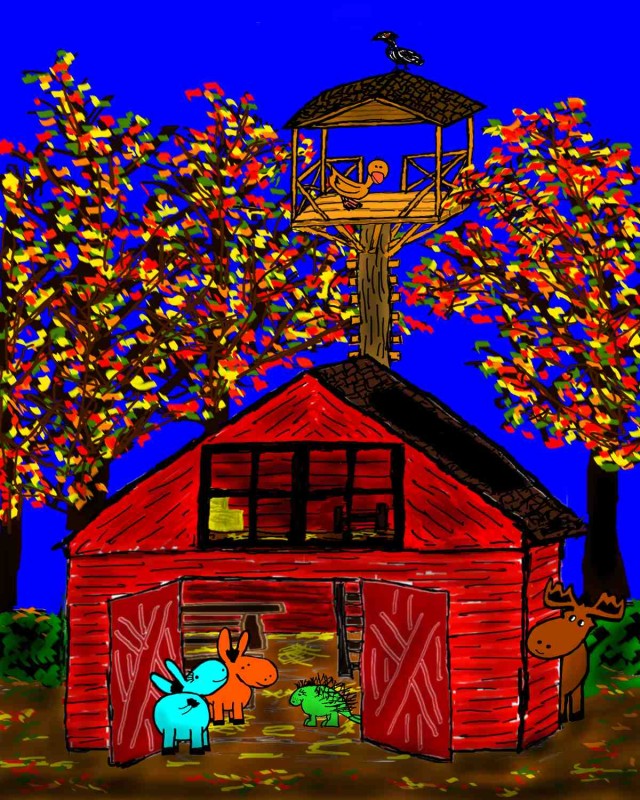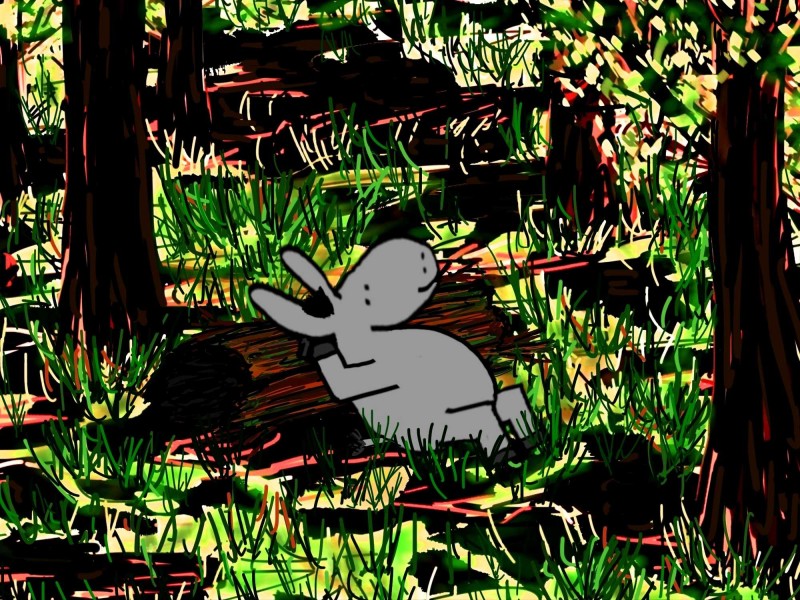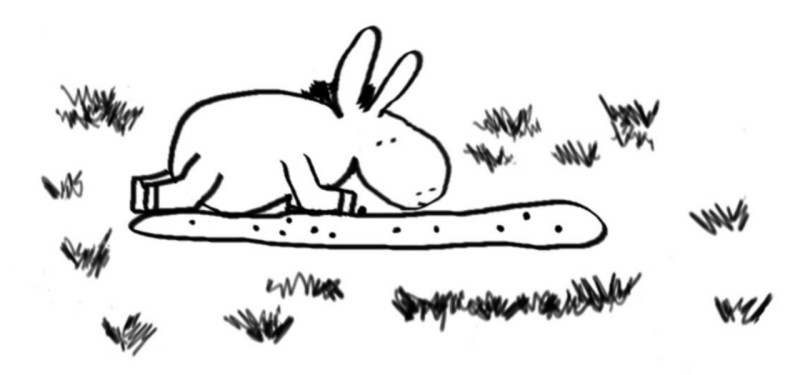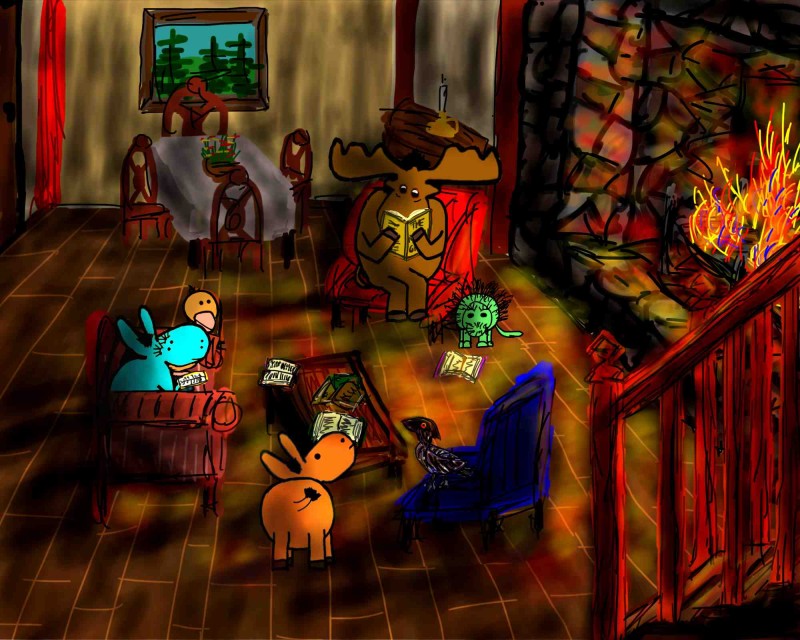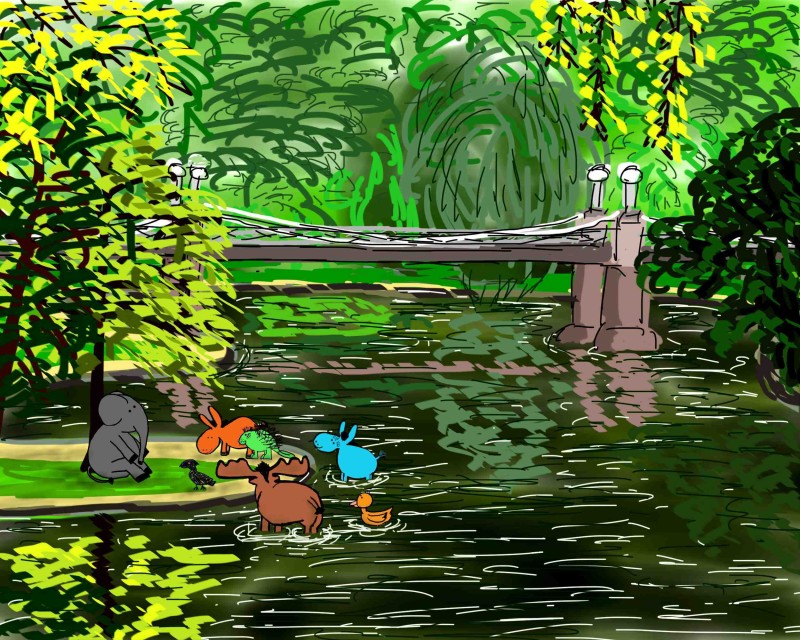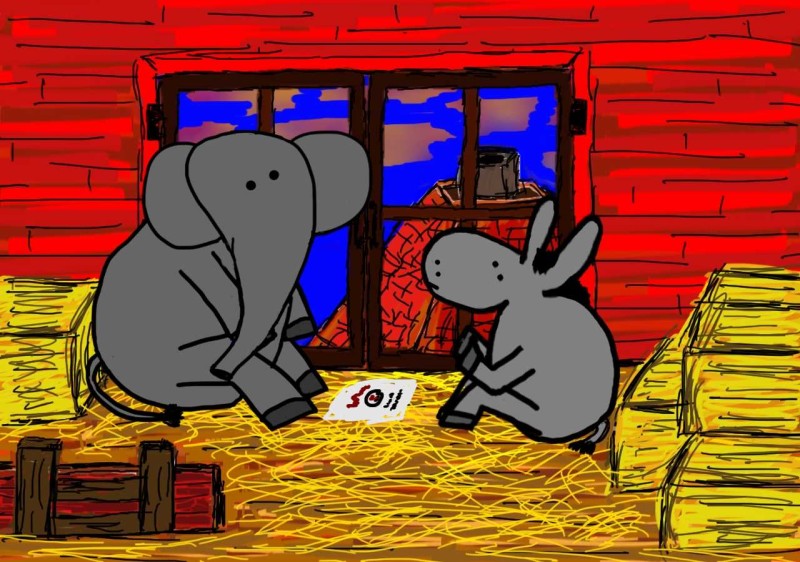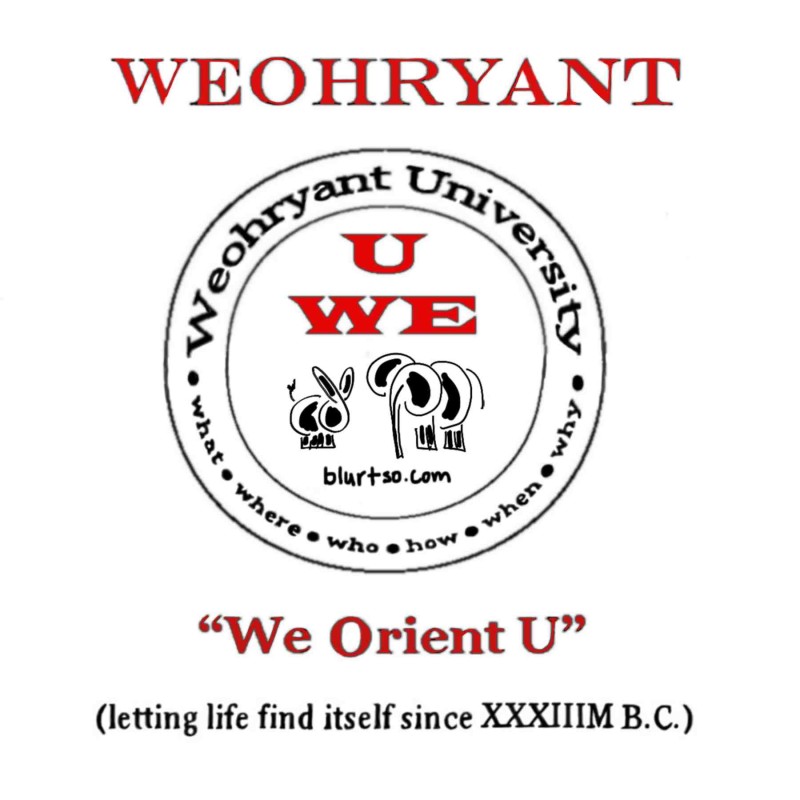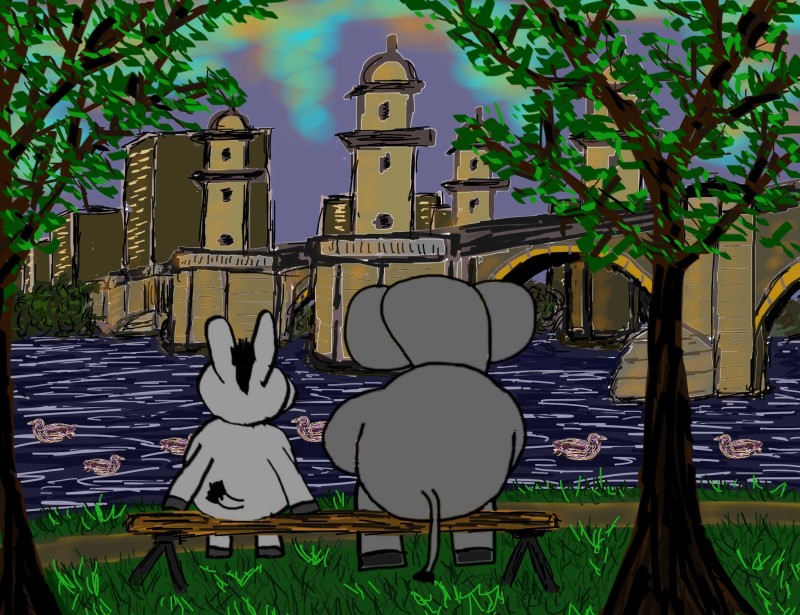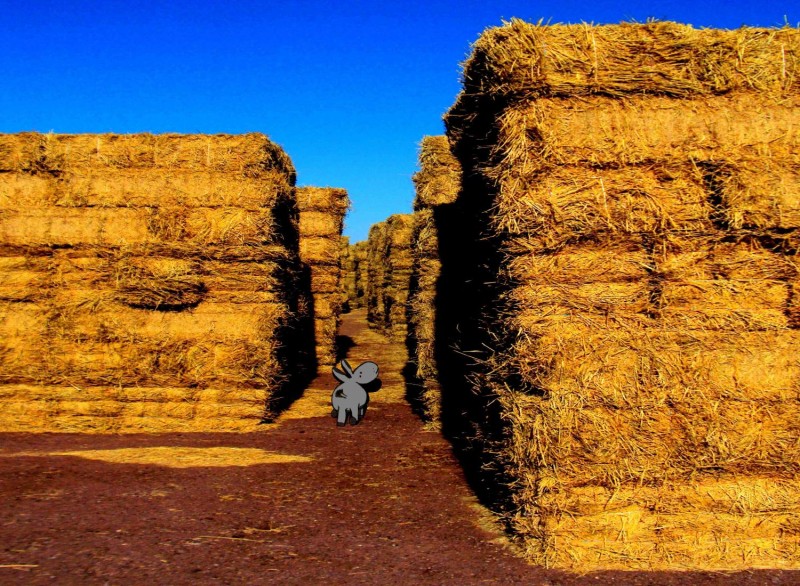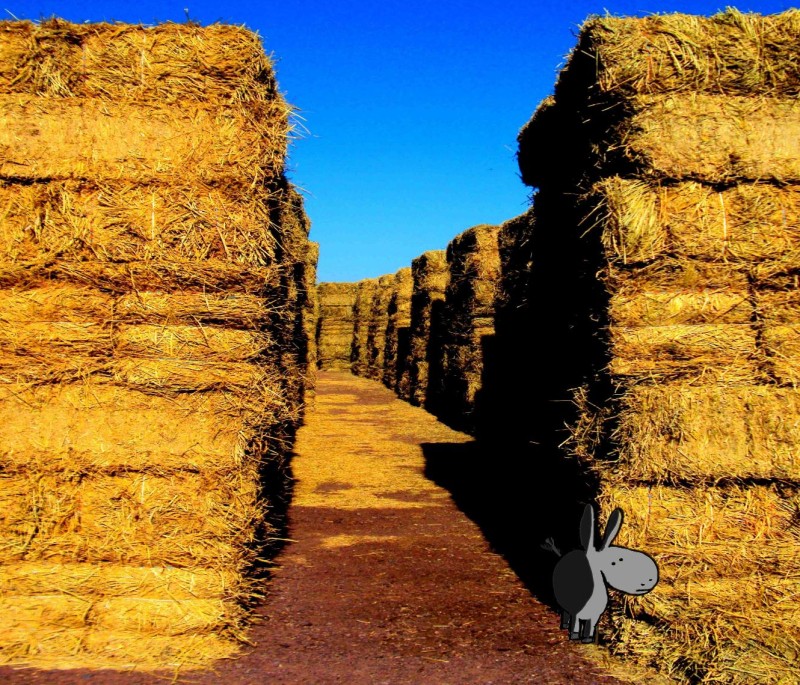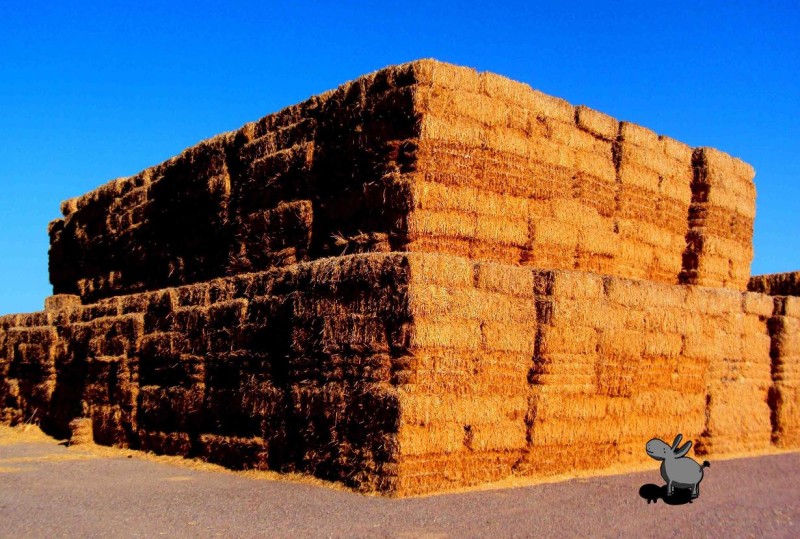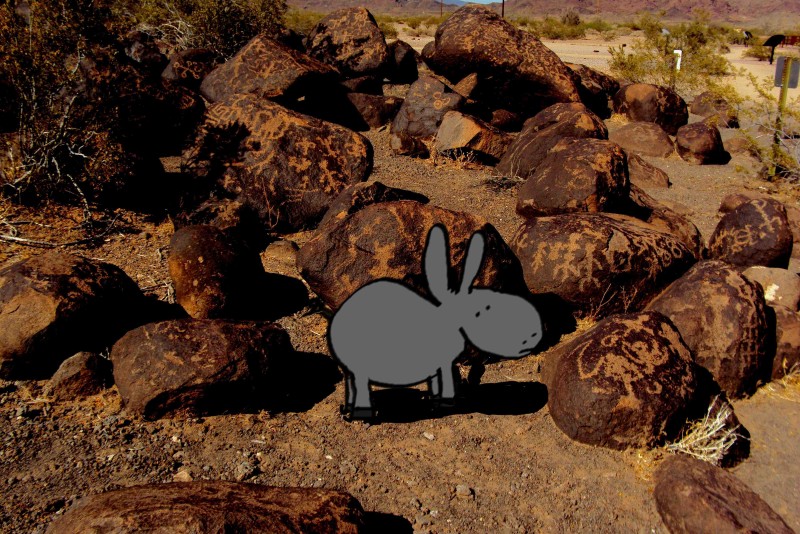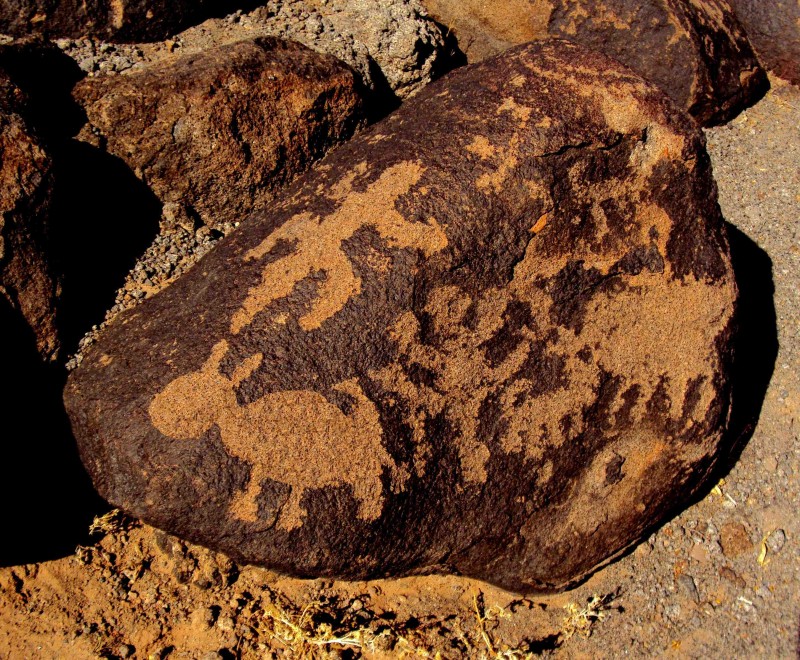“Blurtso sings the donkey electric”
I sing the donkey electric!
A song of asses I sing, near and far!
Asses on hills, asses in fields, asses in herds,
more bountiful than the once-bountiful buffalo,
asses on land and asses at sea, asses short, skinny, fat and tall!
Multitudes of asses, spanning these star-spangled states!
I have perceived that to be an ass
is to be enough.
The ears of the ass are sacred, delicate,
twitching receptacles of sound,
assiduous antennae registering, recording all,
the hooves of the ass are no less
than the slippers of sultans
striding silken alfombras and seraglio stone,
the snout of the ass and his nostrils—a dual lamp
of Aladdin—inhaling flowery fragrance,
leading to wished-for fiestas of pumpkin pleasure,
the ass’s tail, though stumpy or small, and swatting flies,
is a palm fanning reclining Cleopatra,
his teeth, precious jade, are greened and polished
by the grass of a thousand fields,
his attentive eyes and friendly balance of features,
—courtly countenance and caryatid composure—
no less perfect than the visage of Helen.
Such asses I see, to the north and to the south!
From blistering bivouacs of winter
to blazing battalions of summer,
Patagonia to Peloponnese, Malibu to Manhattan,
Concord to Cambridge, every here
and every there, asses I see! Brown, grey,
yellow, red, purple, orange, azure asses!
Asses in other climes, asses in other times,
French, British, Australian, Arabian, Asian asses!
Eating every blade of grass, an ass!
Trampling every leaf that falls, a hoof!
Wading every stream that sings,
a snout, a snort, and a bray!
Hee-haw goes the jack!
Hee-haw goes the jenny!
Hee-haw go the judge and jury and judged!
Hee-haw from the dell! Hee-haw from the glen!
Hee-haw at mid-day! Hee-haw at the moon!
I see the resigned ass, bearing a load,
obeying the coax of his lord,
I see the boisterous ass braying,
in the barn, his bonny bray,
I see the amorous ass (of these there are many),
expressing exigencies by day and by night,
I see farms, fields, freeways and burgs,
each in their way, replete with asininities,
I see the asinine politician, professor, and poet,
each one leaving a brand on the asses of asses.
And the asses of yore, you ask, where are they
with their clip and clop on the stones of the street?
Les ânes voici! I say! Les ânes voici!
Heeding the whinny and neigh,
and ass-bray of the future!
What song do I sing? (you ask and I reply),
I sing the song of asses!
Certain, and stoic, and strong!
From each face an ass!
From each office, family, and farm!
Asses I sing! Avalanches of asses!
I sing! I sing a song of asses!
I sing the donkey electric!

